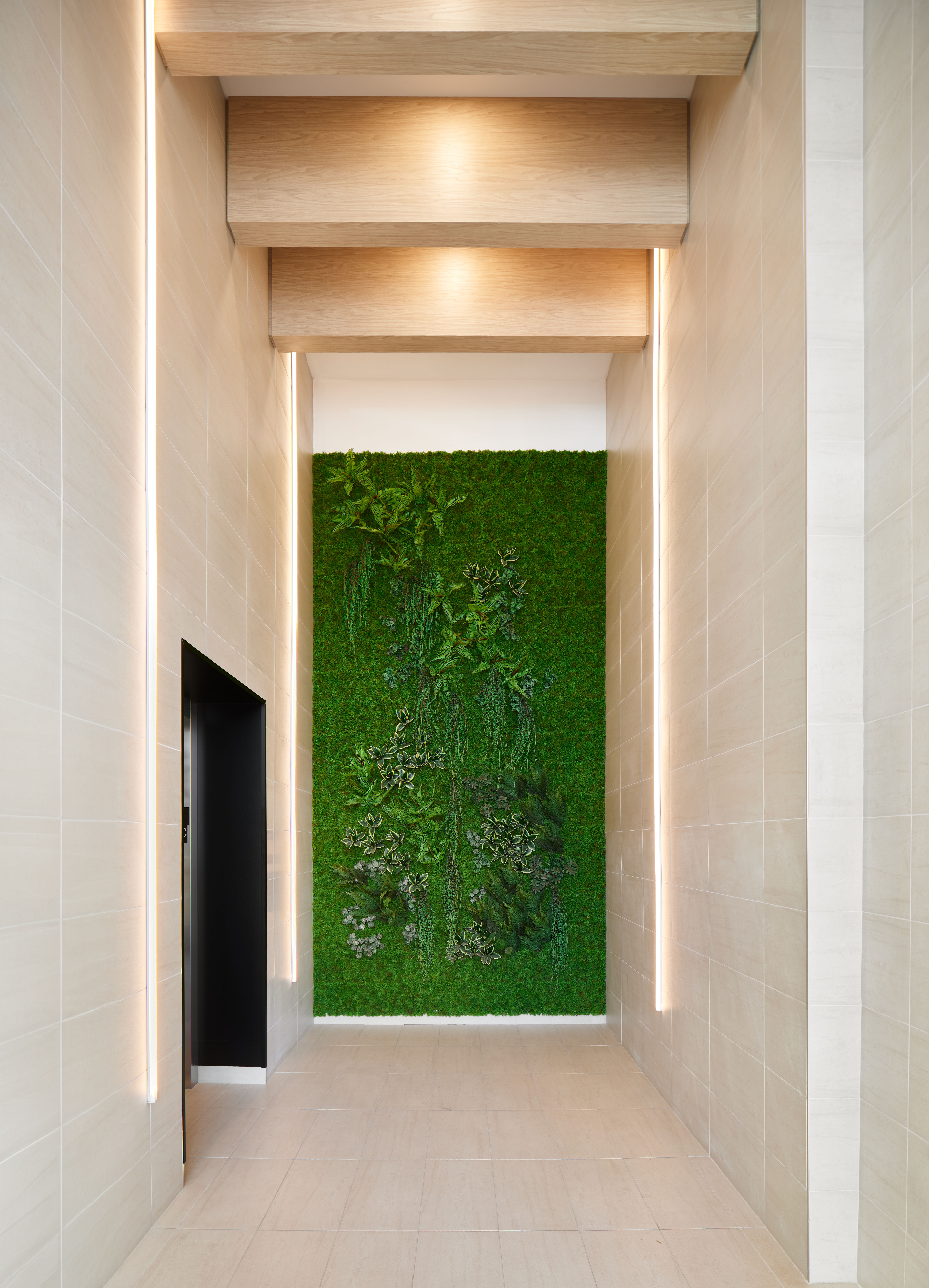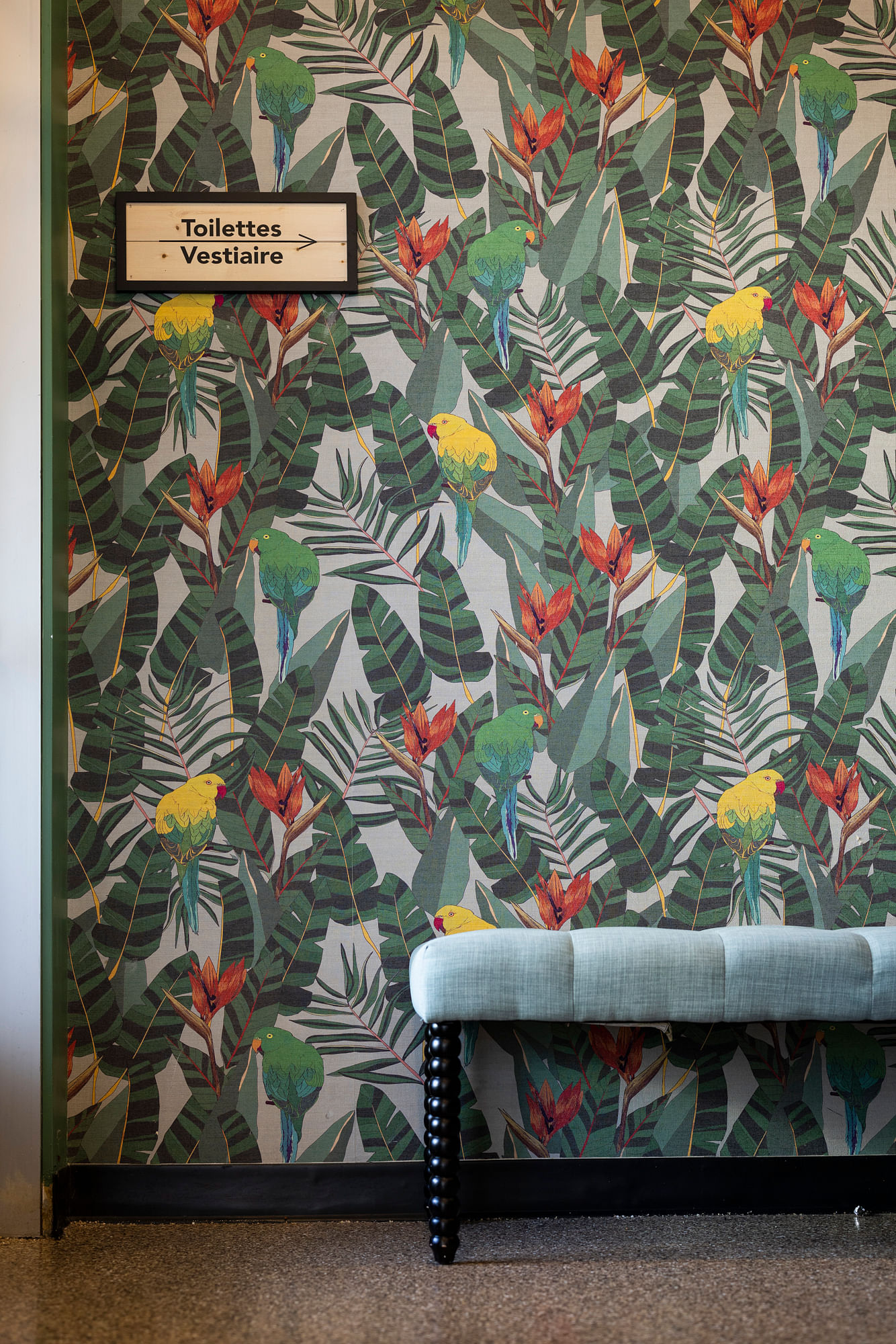Bring your spaces to life
with the power of Biophilic Design
What is Biophilic Design?
Incorporating natural elements into interior design has become an essential trend, transforming the way we conceive and experience our professional and commercial environments.
This approach, known as biophilic design, aims to create spaces that promote well-being, productivity, and creativity among occupants, while also strengthening a company’s brand image
Why choose biophilic design for your environments?
The benefits of integrating nature into design are numerous and widely recognized. Research has shown that biophilic spaces can:
Increase customer appeal
Spaces that incorporate natural elements are often perceived as more welcoming, relaxing, and sustainable, encouraging customers to stay longer and return more frequently.
Enhance brand image
A well-thought-out and consistent biophilic design helps establish a positive and lasting brand identity, associated with values of well-being, responsibility, and environmental respect.
Improve employee well-being
By reducing stress, anxiety, and fatigue, employees feel more fulfilled, motivated, and productive.
How to integrate Biophilic Design into your spaces?
There are countless ways to achieve this, tailored to different industries, budgets, and objectives.
Here are a few effective ideas:
Introduce plants into spaces using green walls
Choose wooden wall coverings
Maximize natural light with panoramic windows, skylights, and open spaces to encourage a visual connection with the outdoors
Create outdoor relaxation areas such as terraces or gardens, offering employees and clients a retreat where they can recharge and rejuvenate
Incorporate natural elements into interior décor, such as floral patterns, nature-inspired artwork, or organic sculptures, to strengthen the connection with the natural world.


The positive impact on your environment and brand
By adopting biophilic design, you can transform your spaces into dynamic, inspiring environments that foster well-being.
By creating a strong connection with nature, you enhance the occupant experience, strengthen your brand image, and turn your spaces into a true driver of performance and loyalty.